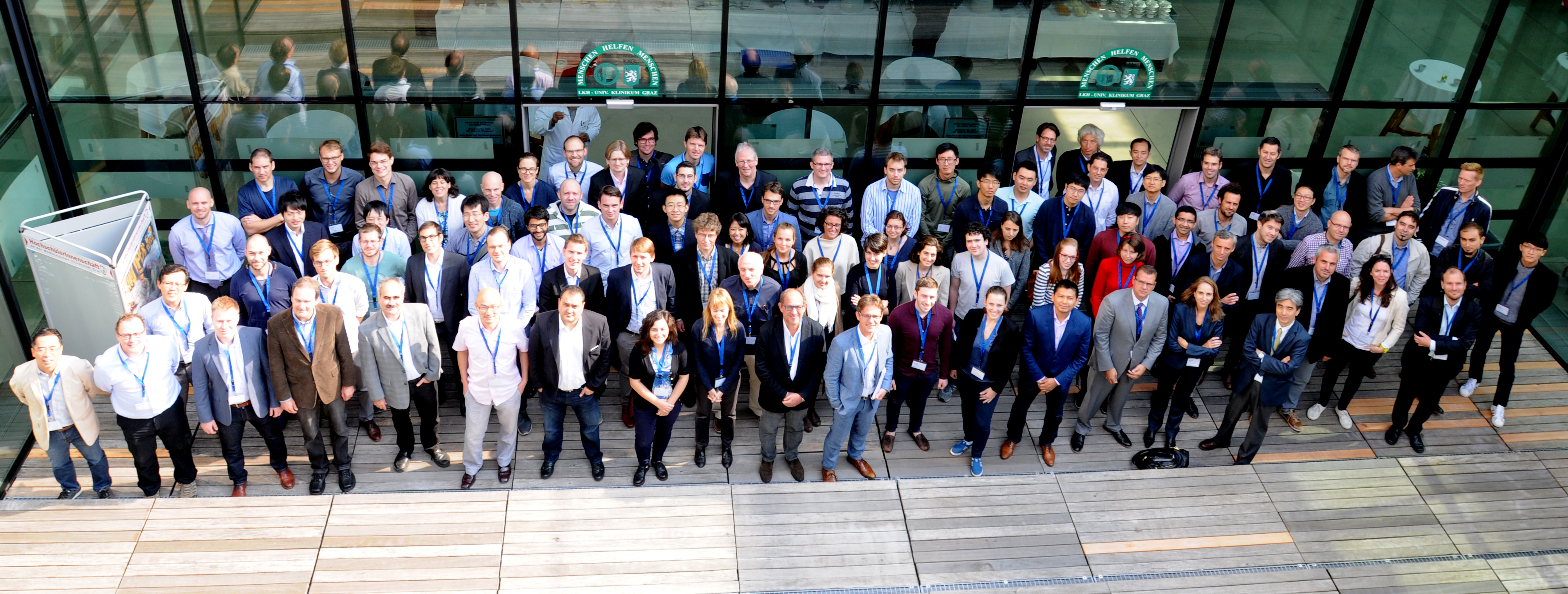Quantitative Susceptibility Mapping Software
Quantitative susceptibility mapping allows the determination of a basic physical property in vivo. Early concepts for QSM were introduced a decade ago and more refined methods have been proposed recently to allow the calculation of magnetic susceptibility from a single orientation, in a clinical setup, and with low reconstruction artefacts.
Graz TGV QSM Algorithm (Alpine QSM)
Described in: ** Langkammer, C; Bredies, K; Poser, BA; Barth, M; Reishofer, G; Fan, AP; Bilgic, B; Fazekas, F; Mainero; C; Ropele, S
Fast Quantitative Susceptibility Mapping using 3D EPI and Total Generalized Variation.
Neuroimage. 2015 May 1;111:622-30. doi: 10.1016/j.neuroimage.2015.02.041.
PubMed (
PDF)
Download: Python source code for total generalized variation (TGV) based QSM including 3D EPI test data (68 MB) from the paper.
Alternatively, there are docker and singularity images and a description how to use tgv_qsm in Windows Subsystem for Linux (WSL 1.0) available. Kindly provided by Steffen Bollmann.
Siemens has a WIP package for Aera, Skyra, Verio and Prisma scanners (WIP 1122A QSM) implemented by Kieran O’Brien.
Related: Martin Soellrad's R2* mapping and correction toolbox based on this MRM paper and Christian Tinauer's relaxometry tool, to accelerate R2*, T2, or T1 mapping using a CUDA capable graphic card (a CPU version is provided as well).
Machine learning based QSM Algorithms (Deep QSM)
Together with Steffen Bollmann we are involved in the development of DeepQSM and SHARQnet. Stefan Bollmann has a python version of DeepQSM online in a Jupyter/Colab notebook, which can be tested directly in the browser without installation and GPU. Stefan Heber has written a DeepQSM extension, where background field removal and dipole inversion are performed in a single feed forward network architecture.
QSM Reconstruction Challenge 2.0 (Seoul 2019)
QSM Reconstruction Challenge 1.0 (Graz 2016)
MRI data and Matlab source code: qsm_recon_challenge_2016.zip (240 MB).
Paper of the QSM reconstruction challenge: mrm26830.pdf (MRM webpage: http://onlinelibrary.wiley.com/doi/10.1002/mrm.26830/full).
List of QSM Algorithms
There is an overview of QSM software from Mathieu Boudreau as well as a summary of deep learning based QSM algorithms from Steffen.
4th QSM Workshop in Graz in 2016
We thank all participants of the 4th International Workshop on MRI Phase Contrast & Quantitative Susceptibility Mapping in Graz!
Pictures and program at the homepage of the
QSM workshop 2016.

This site: http://qsm.neuroimaging.at/



